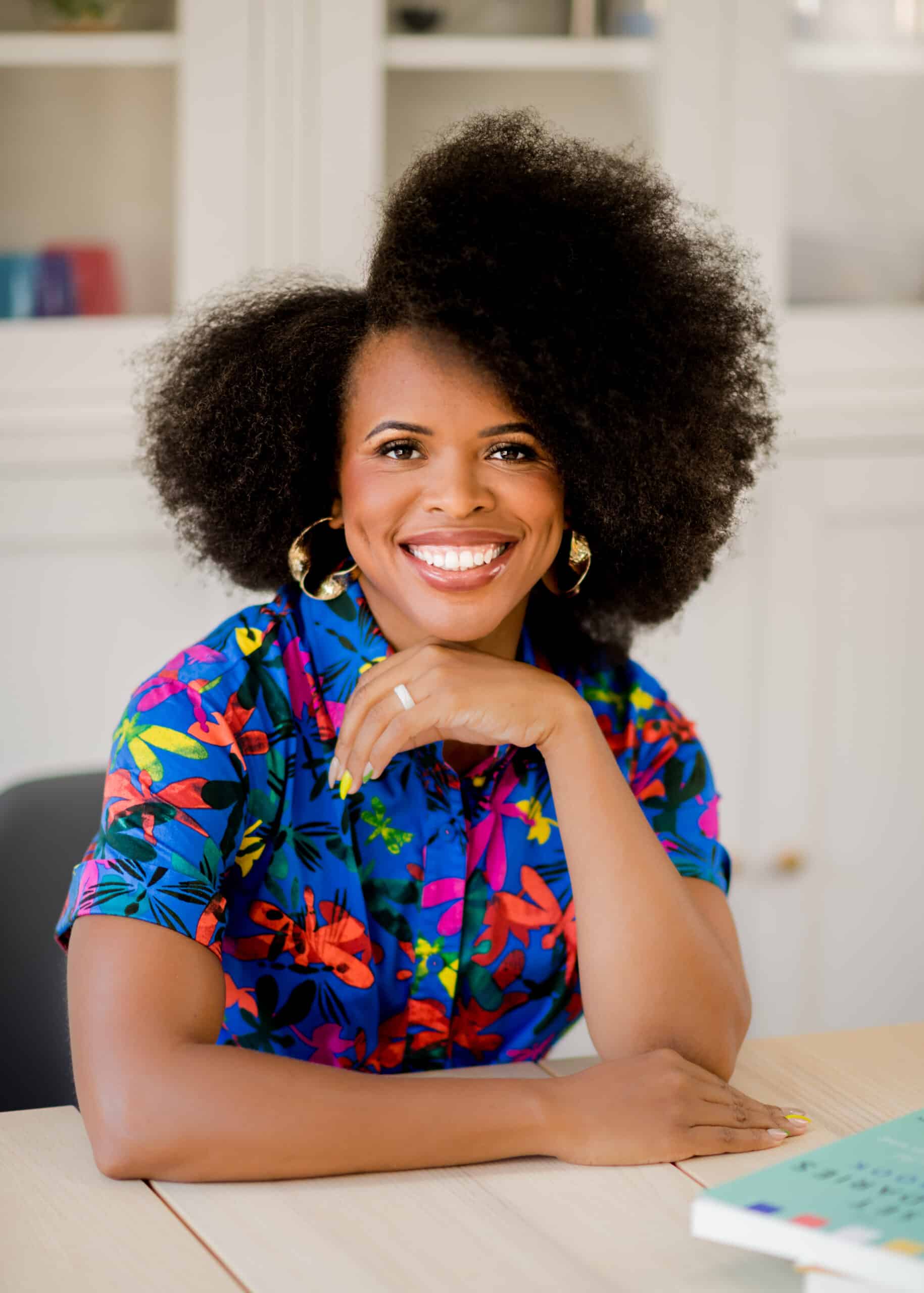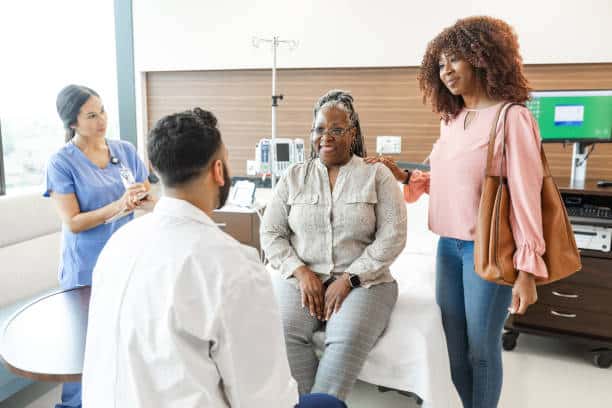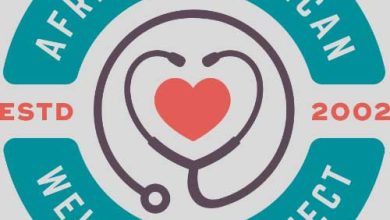Knowledge Is Power: Why Family Health Conversations Matter – BlackDoctor.org


As someone who has spent years helping people navigate fear, anxiety, and family dynamics, licensed therapist Nedra Glover Tawwab understands that one of the most powerful — and most dangerous — emotions we face when it comes to our health is fear.
More specifically, it’s the fear of finding out (FOFO).
For many in the Black community, this quiet, lingering fear keeps us from making doctor’s appointments, asking about our family’s medical history, or following through on screenings that could save our lives.
BlackDoctor spoke with Nedra, who is partnering with Aflac, to shine a light on the importance of preventive care — and to help us turn that fear into empowerment.

The Fear of Finding Out
It’s a phrase that sounds simple but carries heavy emotional weight.
“When we find out there’s this idea that we have to do something about it, that we have to be accountable. There’s a lot of disappointment associated with knowing a health diagnosis,” she says.
Because of this, many people believe the best way to minimize disappointment is to avoid finding out what’s going on.
“I do think that’s why you have Black men, in particular, who don’t necessarily get medical evaluations because the idea of preventive care can sometimes be a little too much,” she adds.
This avoidance often shows up in subtle ways — skipping annual checkups, putting off bloodwork, or ignoring small warning signs.
This mindset, while understandable, can be dangerous. Studies show that preventable illnesses like diabetes, hypertension, and certain cancers disproportionately affect Black Americans, yet screenings for these conditions remain underutilized.
Knowledge Is Power: Why Family Health Conversations Matter
Every family carries its own health story — but too often, those stories are kept secret. In Black households, where silence around illness can be seen as strength, breaking that silence can feel like rebellion.
“Early diagnosis is really helpful for long-term treatment. Sometimes we’re going to hospitals and appointments in a crisis situation…But when we find out about diabetes or sickle cell or some of these things being prevalent in our families, we can keep a watchful eye on them,” Nedra explains.
She shares a personal example: “My grandmother, my mom, everybody had hip replacements. And so, right now, I am trying to exercise and stretch to stay ahead of it because increasing flexibility is a way to prevent that.”
That’s the power of knowledge. By understanding our family’s health history, we can make better decisions for ourselves — and for the next generation.
Nedra encourages making health talk a normal part of everyday life.
If parents say, ‘I’m going to my doctor’s appointment’ or ‘I’m taking my blood pressure meds,’ it sends a message that care is routine, not something to hide.
“Those conversations are really important. Maybe it helps me to identify how I need to cook for you. Maybe it helps me identify how we need to situate gatherings and our food choices,” Nedra adds. “…When we are shy about having those conversations, it certainly gets in the way of people being able to support us. It’s very isolating to deal with this without having the support of people.”
Turning Screenings Into Empowerment
So how do we shift the mindset from fear to empowerment?
It starts with thinking of screenings as preventive, not predictive.
“Hopefully, that takes a bit of a sting out of it. If you know that there is a chance of you having some health issues…if you’re getting those screenings and you can kind of see it tipping up or going up some, you can start to get ahead of it, and perhaps there are some lifestyle choices that you can make so it’s not full-blown,” Nedra. shares. “It’s an opportunity for you to self-correct.”
She recalls her father-in-law’s decision to go vegan after learning he had high cholesterol.
“He said, ‘I don’t want to take medication. I will eliminate these things,’” she notes.
That one choice had a ripple effect — now Nedra has two vegetarians in the family because of her father’s example.”
That’s what Nedra calls the ripple effect of wellness. When one person takes their health seriously, others follow. Screenings aren’t just about you — they’re about the people who love you and learn from you.
“When you disclose what you have going on, health-wise, it can actually be like, ‘Oh, wow, I didn’t know that.’ And that person can come with you on a journey, rather than keeping them at arm’s length… So, opening up, I think, is a wonderful boundary to have when you’re having a health challenge,” Nedra says.

Boundaries, Communication, and Support
In her therapy work, Nedra often teaches the importance of healthy boundaries — and she believes that lesson extends to family health.
We can set loving boundaries around our food choices, our rest, and even how we participate in family gatherings, Nedra explains. If you say, ‘I don’t eat that anymore,’ or ‘I’m focusing on my health,’ that’s a boundary worth honoring.
But she also believes support makes the journey easier. The Aflac Wellness Matters survey found that 83 percent of Black Americans actually feel positively when loved ones remind them to make appointments.
It’s not nagging, according to Nedra. It’s care in action. When someone reminds you to go to the doctor, what they’re really saying is, ‘I want you around.’
Her tip? Make health check-ins part of your regular communication. Send a text: “Hey, I just scheduled my physical. Did you schedule yours?” Mention it at Sunday dinner: “I had my eyes checked today.” You never know who might be inspired to do the same.
RELATED: Family First: Turning Family Reunions Into Health Checkpoints
Mind and Body: Healing Both Sides
Nedra knows that physical and mental health are deeply intertwined. In fact, the survey reveals that concerns about well-being are nearly equal among Black Americans, with 48 percent frequently worrying about their physical health and 47 percent frequently worrying about their mental health.
“When we’re worried about our physical health, I think it creates a level of anxiety. Whether that worry is rooted in unwillingness or whether it’s rooted in the potential of developing an illness, it is feeding some sort of anxiety,” she says.
That’s why she encourages her therapy clients to get medical checkups as part of their mental health journey.
“The best way for me to help you is for you to know for sure. And if we’re dealing with uncertainty, it’s very hard to help with your mental health if you’re refusing to seek an actual diagnosis or even seek treatment for something that you think might be happening,” Nedra adds.
By addressing both mental and physical wellness, we move closer to true healing — the kind that empowers, not paralyzes.
“Even if you get some information that is troubling, I think therapy is a wonderful place to help you sort through that news,” Nedra explains.
Taking the First Step
If fear has been holding you back, Nedra offers one simple piece of advice: just make the appointment.
“The first step is scheduling the appointment. So, if you’re reading this, if you’re listening, schedule the appointment. That’s the first thing. Second thing is, taking someone with you, on a video call, or being in a text conversation with someone, so you can feel like you’re connected to a healthy system,” Nedra advises.
Because the truth is, anxiety is always worse before you act.
“Our anxiety is much worse before you do the thing that we’re actually doing. So when you have a fear of finding out, all of the thoughts leading up to finding out are much worse than actually being on the other line,” Nedra explains. “…Once you actually go to the doctor, after about five minutes, you start to feel normal, that anxiety starts to decrease.”
The Bottom Line
Facing your health fears doesn’t mean facing them alone. Talk to your family. Ask questions. Share what you learn. And as you prepare to gather around the dinner table for the holidays, it is the perfect time to do it.
So take that first step — not just for you, but for your community, your children, and everyone who looks to you for strength. Because caring for yourself is the most powerful act of love you can give.




